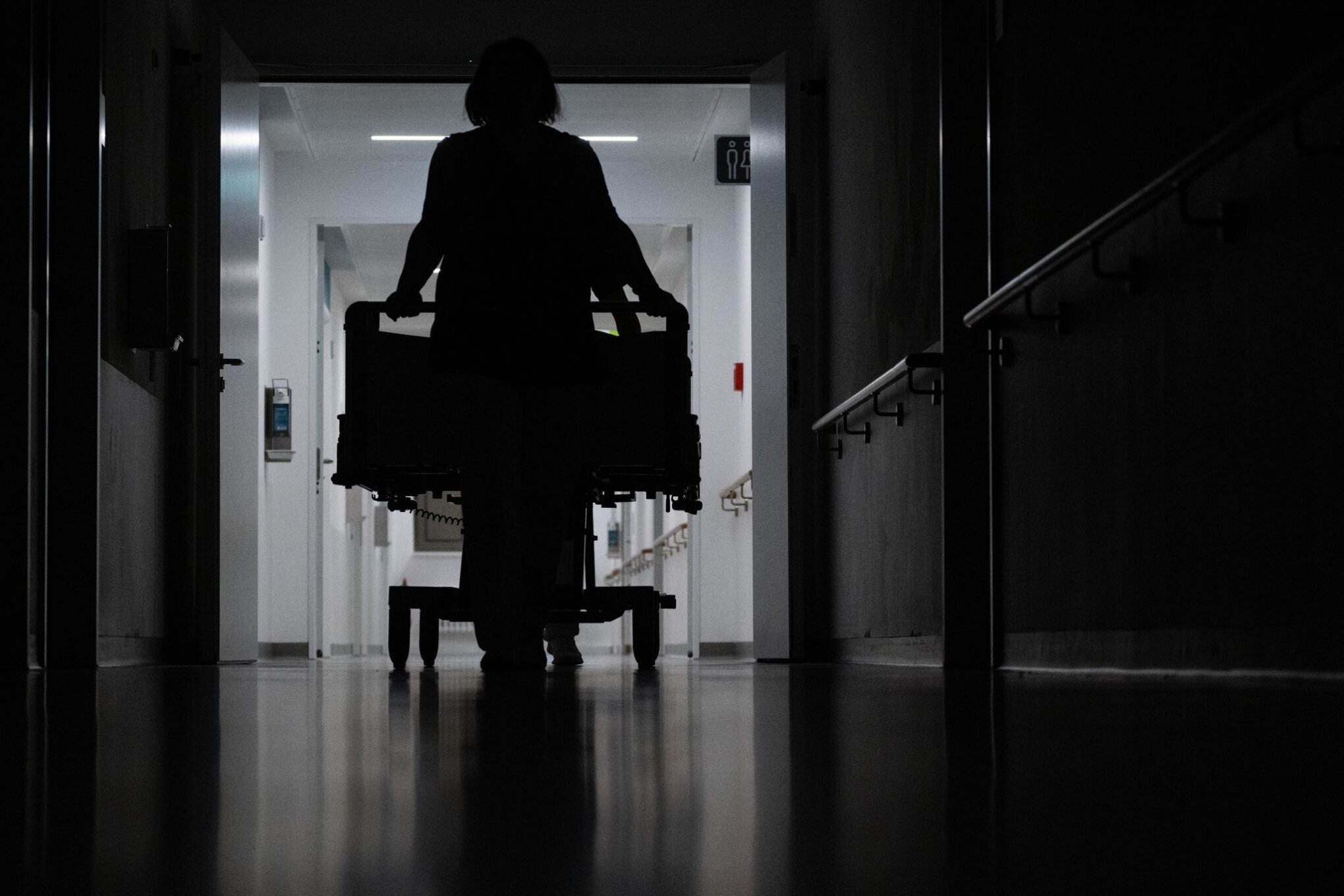
Lauterbach: Number of people in need of care is rising “explosively”
There is already a shortage of nursing staff – and the forecasts for future nursing needs are frightening. But now the figures are even more dramatic than expected. There is no relief in sight.
Despite a massive increase in the number of people in need of care, Federal Health Minister Karl Lauterbach (SPD) sees no chance of a care reform in this legislative period. “Demographically, only an increase of around 50,000 people would have been expected in 2023. But the increase is actually over 360,000,” the SPD politician told the Redaktionsnetzwerk Deutschland (RND). “We don’t yet understand exactly why this is the case.” There is “an acute problem” in the care insurance system.
Despite the increasing need, a comprehensive financial reform in nursing care will probably not be possible in this legislative period, Lauterbach continued. According to the Ministry of Health, an inter-ministerial working group on the topic is due to conclude its deliberations at the end of May. However, it will “probably not come to a uniform recommendation,” the minister admitted. “The views of the various ministries and coalition partners are too different for that.” Possible solutions will be presented side by side – and will serve as the basis for a major reform in the next legislative period. “But then it has to come.”
The Association of Statutory Health Insurance Funds explained that the number of people in need of care has increased by an average of around 326,000 every year since 2017. At that time, people with dementia were included in the insurance in new care levels. “The annual increase includes an average increase of 50,000 people in need of care, which can be derived directly from demographic developments,” the Association of Statutory Health Insurance Funds continued. In 2023, however, there was an above-average increase of 361,000 people in need of care.
Lauterbach: “In recent years, the number of people in need of care has risen explosively.” He assumes that there is a sandwich effect. “In addition to the very old people in need of care, there are now the first baby boomers, who are now also in need of care. So for the first time there are two generations that are dependent on care at the same time: the baby boomers and their parents.” A spokeswoman for Lauterbach said: “We are investigating the causes.”
Unable to maintain performance level
According to previous scientific forecasts, the number of people in need of care will increase from around five million today to six million within 15 years. The increase in the number of people in need of care will vary greatly from region to region, with the increase being particularly strong in Bavaria and Baden-Württemberg due to demographics. According to the Federal Statistical Office’s forecast from February, there will be a nationwide shortage of between 280,000 and 690,000 nursing staff by 2049.
According to Lauterbach, the level of care insurance benefits cannot be maintained with the current contribution system alone, as he made clear. Last July, the coalition decided to increase contributions to 4 percent for those without children and to 3.4 percent for those with one child. At the beginning of May, company health insurance funds raised the alarm with projections that predicted a deficit in care insurance of one billion euros this year and 4.4 billion euros by 2025.
The social affairs director of Diakonie Deutschland, Maria Loheide, warned on the day of the nurses in May: “If the money from the nursing insurance is no longer sufficient, the care of people in need of care is at risk.” Health insurance companies and also municipalities often ignore rising personnel costs due to wage increases, Loheide told the German Press Agency.
Union: Lauterbach declares bankruptcy
The Union in the Bundestag criticized it as a declaration of bankruptcy that Lauterbach no longer sees any medium-term chance for reform. “This is a failure for the traffic light coalition,” said the Union’s health policy spokesman, Tino Sorge (CDU). “If the coalition partners can no longer find solutions because their views are too far apart, then they should give up their claim to shape the health sector.”
Bavaria’s CSU parliamentary group leader and former health minister Klaus Holetschek said: “The large-scale care plan planned for the next legislative period is coming far too late.” Holetschek called for a wage replacement benefit similar to parental allowance for caring relatives.
The relatives have long been considered “the largest nursing service in Germany”. But many families are mentally, physically and financially exhausted, warned the German Foundation for Patient Protection a few days ago. “So that the federal government can provide immediate help, the nursing allowance must be increased immediately and across the board by 300 euros,” demanded board member Eugen Brysch.
Nursing staff missing
According to a survey conducted by the Evangelical Association for Senior Care and Nursing in February, four out of five nursing facilities have to limit their services due to a lack of staff. Nine out of ten outpatient services turned down new customers in 2023. The Federal Employment Agency in Nuremberg ranks nursing staff first nationwide among all professional groups with a shortage. Almost 1.7 million nursing staff in medical, geriatric and pediatric nursing were employed in regular jobs in 2023 – 10,000 more employees than in the previous year. 82 percent of all nursing staff are women. Of these 1.39 million women, just over half work part-time.
Meanwhile, care in a nursing home is becoming more and more expensive. Despite relief supplements, co-payments for those in need of care have recently continued to rise. As of January 1, the average national cost of living in the first year in a nursing home was 2,576 euros per month – 165 euros more than at the beginning of 2023.
Lauterbach had already made it clear that he sees the pure contribution-based financing of nursing care insurance coming to an end. In the long term, there will be no avoiding tax revenue for this, he said in April at the geriatric care trade fair in Essen. (dpa)
- More reading comfort even on the go
- E-paper and news in one app
- Push notifications throughout the day
No thanks. Continue in this view.

Ethel Purdy – Medical Blogger & Pharmacist
Bridging the world of wellness and science, Ethel Purdy is a professional voice in healthcare with a passion for sharing knowledge. At 36, she stands at the confluence of medical expertise and the written word, holding a pharmacy degree acquired under the rigorous education systems of Germany and Estonia.
Her pursuit of medicine was fueled by a desire to understand the intricacies of human health and to contribute to the community’s understanding of it. Transitioning seamlessly into the realm of blogging, Ethel has found a platform to demystify complex medical concepts for the everyday reader.
Ethel’s commitment to the world of medicine extends beyond her professional life into a personal commitment to health and wellness. Her hobbies reflect this dedication, often involving research on the latest medical advances, participating in wellness communities, and exploring the vast and varied dimensions of health.
Join Ethel as she distills her pharmaceutical knowledge into accessible wisdom, fostering an environment where science meets lifestyle and everyone is invited to learn. Whether you’re looking for insights into the latest health trends or trustworthy medical advice, Ethel’s blog is your gateway to the nexus of healthcare and daily living.



